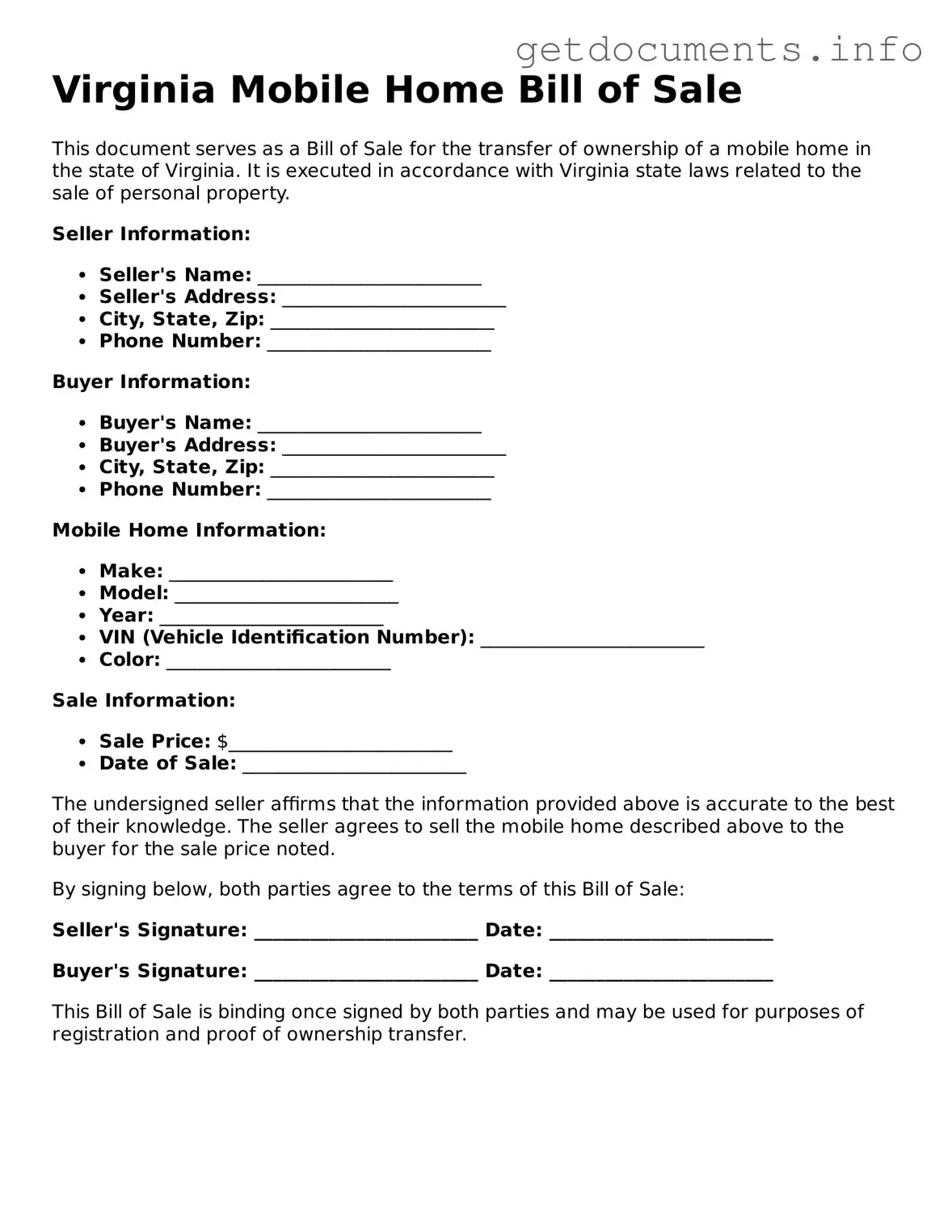Free Mobile Home Bill of Sale Template for Virginia
The Virginia Mobile Home Bill of Sale form is a legal document that facilitates the transfer of ownership for a mobile home between a seller and a buyer. This form outlines essential details, including the names of the parties involved, the mobile home's description, and the sale price. To ensure a smooth transaction, it is crucial to fill out this form accurately; click the button below to get started.
Access Mobile Home Bill of Sale Editor

Free Mobile Home Bill of Sale Template for Virginia
Access Mobile Home Bill of Sale Editor
Got places to be? Complete the form fast
Fill out Mobile Home Bill of Sale online and avoid printing or scanning.
Access Mobile Home Bill of Sale Editor
or
⇩ PDF File
